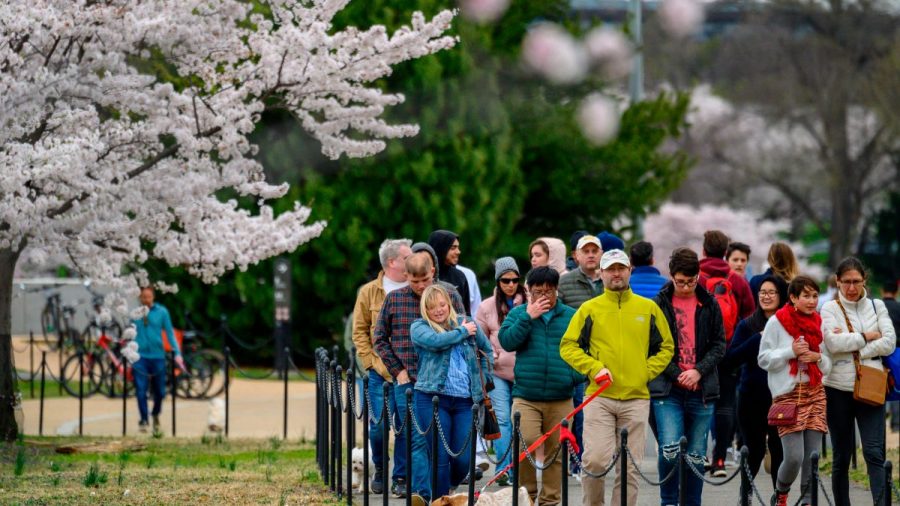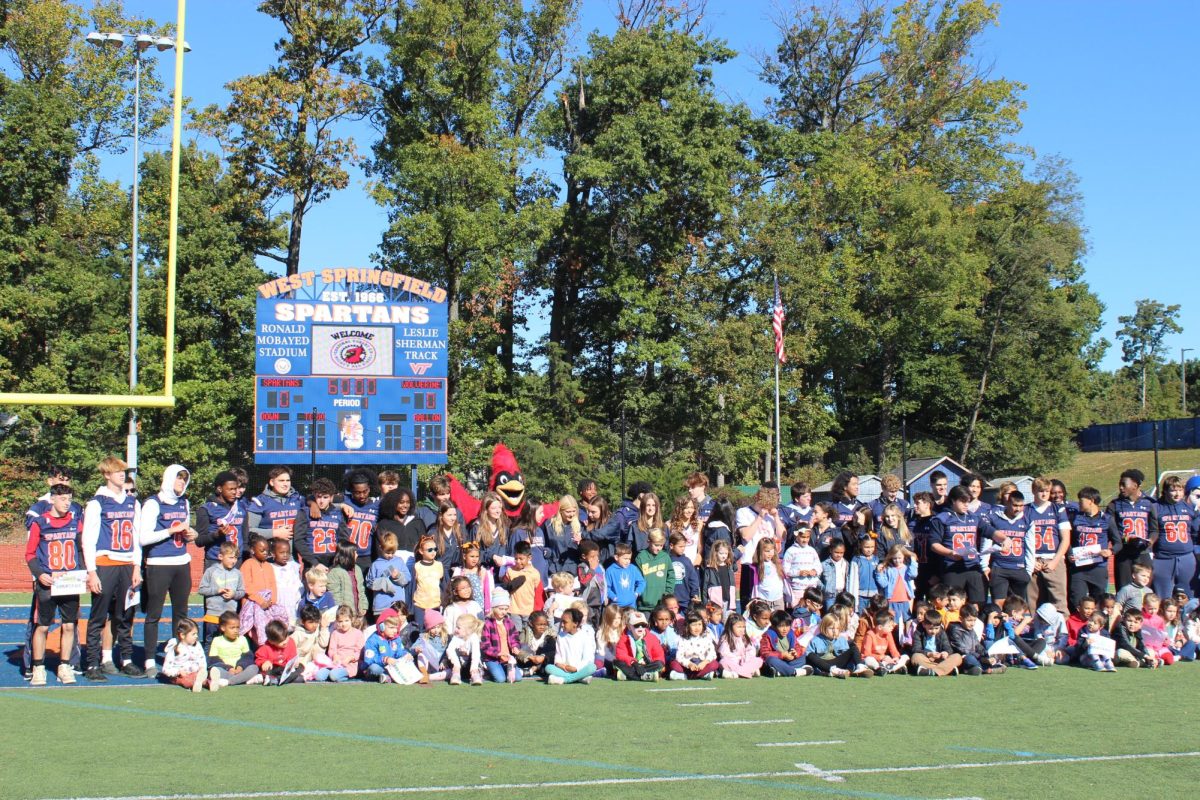Social distancing is more important than you think
Photo courtesy of Eric Baradat via Getty Images under Creative Commons License
Tourists gather in crowds in Washington D.C. on March 26 despite social distancing guidelines from the city.
May 19, 2020
Teens all over the country are experiencing new events and are facing numerous disappointments, including missing out on life experiences and not being able to hang out with friends. Many people are struggling to adjust to this socially-isolated way of life, meaning that they can’t go about trying to live their lives as they normally would. Though, this still hasn’t stopped them from trying anyway.
Young people everywhere seem to feel as though they are “invincible” against the coronavirus. This had led to many of them blatantly ignoring social distancing guidelines set by the CDC, and it has serious consequences.
All over the country, you see many instances and scenarios where teens and young adults are hanging out and throwing parties, despite orders against gatherings of more than ten people. From spring breakers filling up Florida’s beaches to young tourists packing the streets of Washington D.C. to see the cherry blossoms, these people have endangered their lives and the lives of people around them. Even going as far as to throw a “coronavirus party” in Kentucky (where multiple people ended up testing positive for the virus), young people have proven that they do not understand the importance of social distancing.
Young people are not immune to this illness. The common belief is that this virus is only harmful to the elderly and people with pre-existing health conditions. However, as of early May, about 2,100 people under the age of 30 have gotten the coronavirus in Virginia. Just because someone is not in the high-risk population doesn’t mean that they cannot suffer from infection. Even more so, there is a high potential of the virus being spread to someone who is at high risk. Even if young people are less likely to die from the virus, there’s a high possibility that someone else might. The choices made about where to go could mean life or death for others.
A good idea to keep in mind is to think about who you should social distance for. Think about grandparents, neighbors, and everyone who might be at high risk. After being out with friends, coming home to adults, children, and grandparents who may not be as resistant to the virus could be deadly for them. So please keep in mind that these rules and guidelines aren’t in place to hinder life experiences, but to save them for millions of people.





